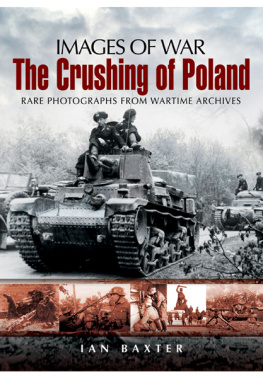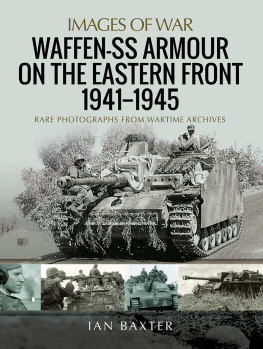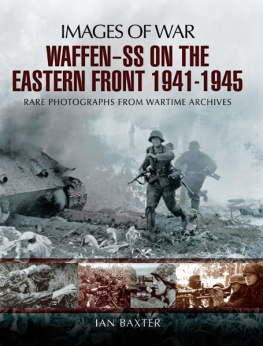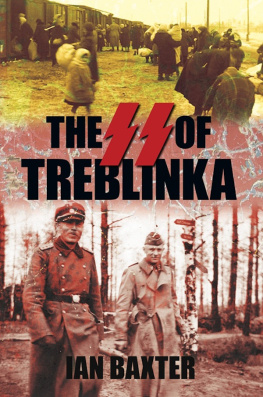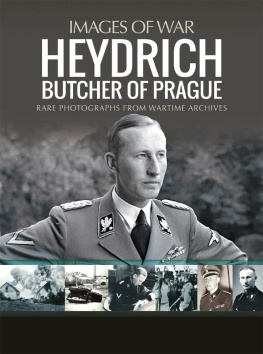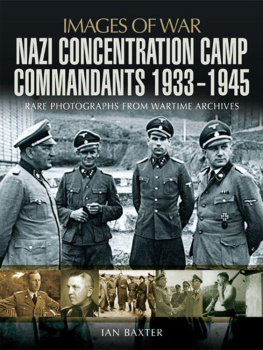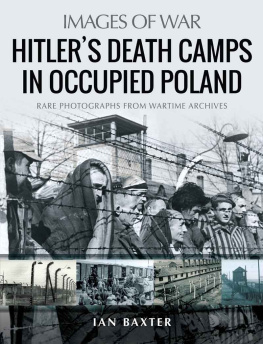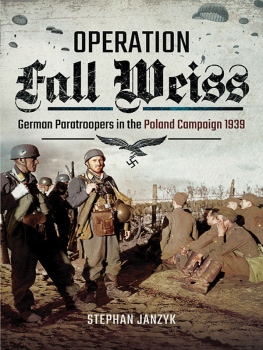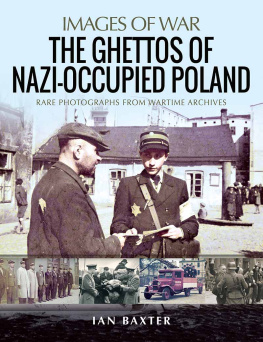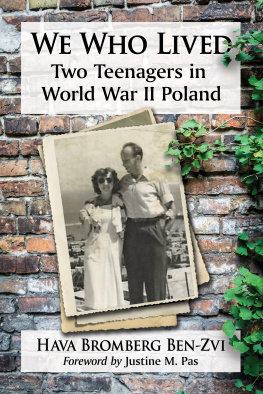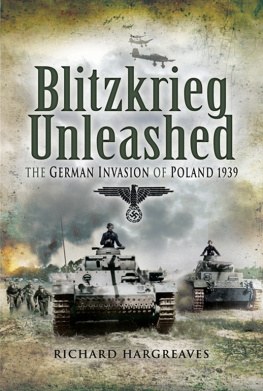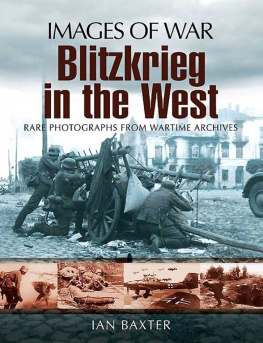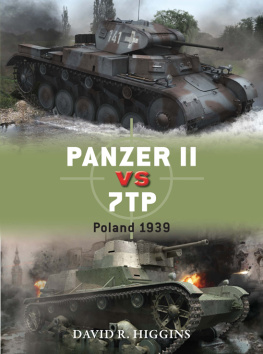
First published in Great Britain in 2008 by
P E N & S W O R D M I L I T A R Y
an imprint of
Pen & Sword Books Ltd,
47 Church Street, Barnsley,
South Yorkshire
S70 2AS
Copyright Ian Baxter, 2008
PRINT ISBN 978-1-84415-846-1
PDF ISBN: 9781783038893
EPUB ISBN: 9781783038916
PRC ISBN: 9781783038909
The right of Ian Baxter to be identified as author of this work
has been asserted by him in accordance with the
Copyright, Designs and Patents Act 1988.
A CIP catalogue record for this book is available
from the British Library.
All rights reserved. No part of this book may be reproduced or transmitted
in any form or by any means, electronic or mechanical including photocopying,
recording or by any information storage and retrieval system,
without permission from the Publisher in writing.
Printed and bound in Great Britain by CPI UK
Pen & Sword Books Ltd incorporates the imprints of
Pen & Sword Aviation, Pen & Sword Maritime,
Pen & Sword Military, Pen & Sword Select, Pen & Sword Military Classics,
Leo Cooper and Wharncliffe Local History.
For a complete list of Pen & Sword titles please contact:
PEN & SWORD BOOKS LIMITED
47 Church Street, Barnsley, South Yorkshire, S70 2AS, England.
E-mail:
Website: www.pen-and-sword.co.uk
The Author
I Ian Baxter is a military historian who specialises in German twentieth century military history. He has written more than twenty books including Wolf Hitlers Wartime Headquarters, Poland The Eighteen Day Victory March, Panzers In North Africa, The Ardennes Offensive, The Western Campaign, The 12th SS Panzer-Division Hitlerjugend, The Waffen-SS on the Western Front, The Waffen-SS on the Eastern Front, The Red Army At Stalingrad, Elite German Forces of World War II, Armoured Warfare, German Tanks of War, Blitzkrieg, Panzer-Divisions At War, Hitlers Panzers, German Armoured Vehicles of World War Two, Last Two Years of the Waffen-SS At War, German Soldier Uniforms and Insignia, German Guns of the Third Reich, Defeat to Retreat: The Last Years of the German Army At War 19431945, Operation Bagration the destruction of Army Group Centre, German Guns of the Third Reich, Rommel and the Afrika Korps, the Sixth Army and the Road to Stalingrad, U-Boat War, and most recently, Hitlers Eastern Front Headquarters Wolf s Lair 19411945. He has written over one hundred journals including Last days of Hitler, Wolf s Lair, Story of the V1 and V2 rocket programme, Secret Aircraft of World War Two, Rommel At Tobruk, Hitlers War With His Generals, Secret British Plans To Assassinate Hitler, SS At Arnhem, Hitlerjugend, Battle Of Caen 1944, Gebirgsjger At War, Panzer Crews, Hitlerjugend Guerrillas, Last Battles in the East, Battle of Berlin, and many more. He has also reviewed numerous military studies for publication, supplied thousands of photographs and important documents to various publishers and film production companies worldwide, and lectures to various schools, colleges and universities throughout the United Kingdom and Southern Ireland.
Acknowledgements
It is with the greatest pleasure that I use this opportunity on concluding this book to thank those who helped make this volume possible. My expression of gratitude first goes to my German photographic collector Rolf Halfen. He has been an unfailing source; supplying me with a number of photographs that were obtained from numerous private sources. Throughout the research stage of this book Rolf searched and contacted numerous collectors all over Germany, trying in vain to find a multitude of interesting and rare photographs. I am also indebted to Jim Payne who provided me with photos from an album that once belonged to someone who was part of the support staff for General Rommel.
Further afield in the USA I am also extremely grateful to Richard White, who supplied me with a number of photographs that he sought from private photographic collections in
Germany and other parts of the world.
Preparation for War
Now that the stage for aggression was set, all military preparations for the planned attack against Poland, code-named Case White (Falls Weiss), was issued to the armed forces. As the second half of August 1939 began, German military chiefs pushed forward their final plans to destroy Poland and liberate its western parts from an area that was predominantly German. On 22 August Hitler summoned his principle Eastern Front commanders to the Obersalzberg and elaborated on his military plans. Speaking with eagerness he told his generals that the war with Poland would be a different type of warfare, not like the dehumanizing years of trench warfare in the 19141918 war, but a new concept: Blitzkrieg, a swift all-out attack of such force and ferocity that victory would be secured quickly and decisively.
As a storm began to brew outside he told his captivated audience that they should display an iron nerve, even if the West wanted war, it was vital, he said, to crush every living spark out of Poland rapidly and, if needed, brutally. In one of his most arrogant and uncompromising moods he concluded, I have done my duty, now go out and do yours. Commander-in-Chief of the Army, General Walther von Brauchitsch assured his Fhrer the Wehrmacht would do its duty. He then leaped to his feet and dismissed the whole audience telling them, Gentlemen to your stations.
A few days later as the war clouds of war settled over Europe on the evening of 31 August 1939, a million and a half German troops began moving forward to their final positions on the Polish border for the jump off at dawn. Long columns of vehicles, guns, and men moved forward towards their assembly areas. Thousands of soldiers joined with other columns until the whole German army formed a continuous line of military might. The entire German/Polish frontier had become a vast military encampment. Under the trees beside roads stood dump after dump of artillery ammunition, mines and engineering stores. The soldiers were dwarfed by the tank and vehicles parked hidden in the woods and fields, where trucks and halftracks, armoured cars and artillery pieces stood in ranks reaching to the horizon. Above all, there were the men 52 German divisions, corps troops, headquarter units, lines of communication personnel. At last, they were preparing in earnest for what they had to do. Most men were impatient to end the months of training and begin the battle upon which all their thoughts had been focused for so long.
Already the postponement of the attack on 26 August 1939 much increased the mental strain and physical pressure on the men waiting in the fields, undergrowth and forests. They chatted quietly, played cards, and in many cases simply laid in anxious silence.

Prior to the attack on Poland in August 1939 German troops line-up for inspection with their rifles. Three MG34 machine guns can be seen on their bipods. Hitler wanted his forces to invade Poland on the 26 August 1939, which was the anniversary of the World War One Battle of Tannenberg, East Prussia in 1914.
As night fell, units which were to form the first line of attack drew up to the frontier area, vehicle headlights were extinguished, smoking forbidden and the formations took up primary positions in the surrounding forests. Nearby the assault detachments moved up to the frontier wire and waited with anxiety at their jumping-off points. As the German Army completed its battle positions there was a general feeling, not of the excitement at the coming of the war, but something more deeply ingrained a determination and firm belief to do its duty.
Next page
